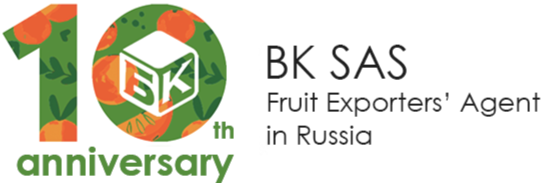– Ali, could you tell us a bit about your job? What do you do at Bksas?
– Simply put, my job is to resell fresh fruits and vegetables on the wholesale market. I work with fruits that supermarkets reject upon arrival.
– What is the goal of your work?
– My goal is to sell the goods before they perish at best possible price. I must find buyers and collect the money. The wholesale market is rather unstable since supply and demand often vary considerably. When supply exceeds demand, I am obliged to reduce my price.
– What are the stages of selling products on the market?
– I usually start by selling by the pallet, directly from the truck, on the ramp. After three days, I unload the remaining pallets from the truck into a cold store and sell them from there. Whenever necessary, I hire an assistant to help me unload the goods.
– What are the challenges in your work?
– There is only one wholesale market in Moscow nowadays: “Food City”; it is like a monopoly. All vegetables and fruits for wholesale trade in Russia are sent there, which often creates an impression of oversupply. In addition, our rejections are irregular. So we don’t rent a permanent warehouse. I need to book a space for my truck on the spot each time. Regular customers might struggle to find me.
– What products do you sell most often?
– This season, I sold a lot of cherry tomatoes origin Senegal, pomegranates, mangos, and lychees.
– Are any items easier to resell than others?
– Everything depends on quality, shelf life, supply, and demand. When there are many similar products on the market, it is harder to sell.
Rejection management at the Moscow wholesale market
We asked Ali, our sales manager at the Moscow “Food City” wholesale market, to tell us how he manages rejected products in Russia.




